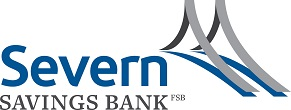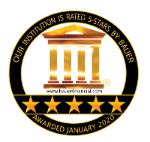We believe in sharing the latest scams in an effort to help you protect your personal information and systems from being compromised.
Below is a list of some of the more common scams we want you to be on the look out for.
Secret Shopper Scam
Victim receives a bogus check and is told to deposit it, keep some as their pay and then wire the remainder to test a store's money transferring service, or purchase gift cards and text images of the codes to the scammer. The victim's bank doesn't realize the deposited check is a fake until long after the wired money is gone.
Car Wrap Scam
People solicited to have their car wrapper with a logo of a beer, soda, or other brand. Scammers then send a counterfeit check and tell the victim to deduct their pay and wire the rest to the company doing the wrapping (actually the scammer). When the checks ultimately bounce, the victim is on the hook for the balance.
Overpayment Scams
Fraudsters pretend they want to buy an item on Craigslist, Facebook, or a similar site. They "accidentally" send a bogus check for more than the sale price; then ask the victim to just deposit the check and send them back the difference. When the original check bounces, the victim is out the money sent.
Alternatively, the criminal will intentionally send a check for more than the amount, typically to pay "shippers" who are actually bogus accounts controlled by the criminal. This most commonly occurs with large ticket items, like cars, motorcycles, boats, furniture, and appliances.
Phishing Scams Using Phones
In addition to using e-mails to obtain personal information, perpetrators also use phones to collect personal information like your account number, social security number, or your debit and credit card information. You may receive an automated call stating that your account or card number has been compromised and a request is made to contact a specific number to resolve the issue.
The bank would NEVER contact you and ask for your debit or credit card numbers. If you receive a message like this simply ignore or delete it. This serves as further reinforcement to never respond to unsolicited messages requesting account information. If this occurs, immediately hang up and contact us to report the details of the scam, as this phishing scam is trying to get your account number.
Pharming Scams
Pharming scams use e-mail solicitations to lure victims to a bogus site. When the customer clicks on the link provided in the e-mail, malicious software is installed to re-direct the user to a fraudulent site where personal information can be requested by the scammer. To verify you are visiting a valid website, check for a certificate from a service like VeriSign®. You can locate this information by clicking on the padlock icon that appears in the URL address to view the sites security certificate. Be sure to verify the name on the certificate matches the name on the site. Be sure to run anti-virus and anti-spyware software and update your computer with the latest security patches and firewalls.
Bogus Credit Report Solicitation Scams
A visitor to the Bank’s website may be presented with bogus solicitations to receive a copy of your credit report. This solicitation is caused by malware, spyware, or adware on the visitor’s computer. The solicitation is in no way sponsored or endorsed by the Bank. It is recommended that anyone receiving this solicitation run a full scan with their antivirus and or antispyware program.
Key Logging Scam
Another scam often used is key logging. Key logging software is installed on your machine without your knowledge through an unsolicited email or download of software that infects your machine. The unwanted software is often referred to as "spyware", "adware" or "key logging software" and records everything you type on your computer, including passwords. Some symptoms that your machine may be infected by unwanted software include:
- Slowing of your computer
- Increase in unsolicited emails
- Strange browser behavior including increased pop-ups and unexplained changes to your home page settings and favorites
To minimize the risk of key logging, make sure you have up-to-date virus software installed and avoid downloading information from sites or sources that are unfamiliar.





.png)



